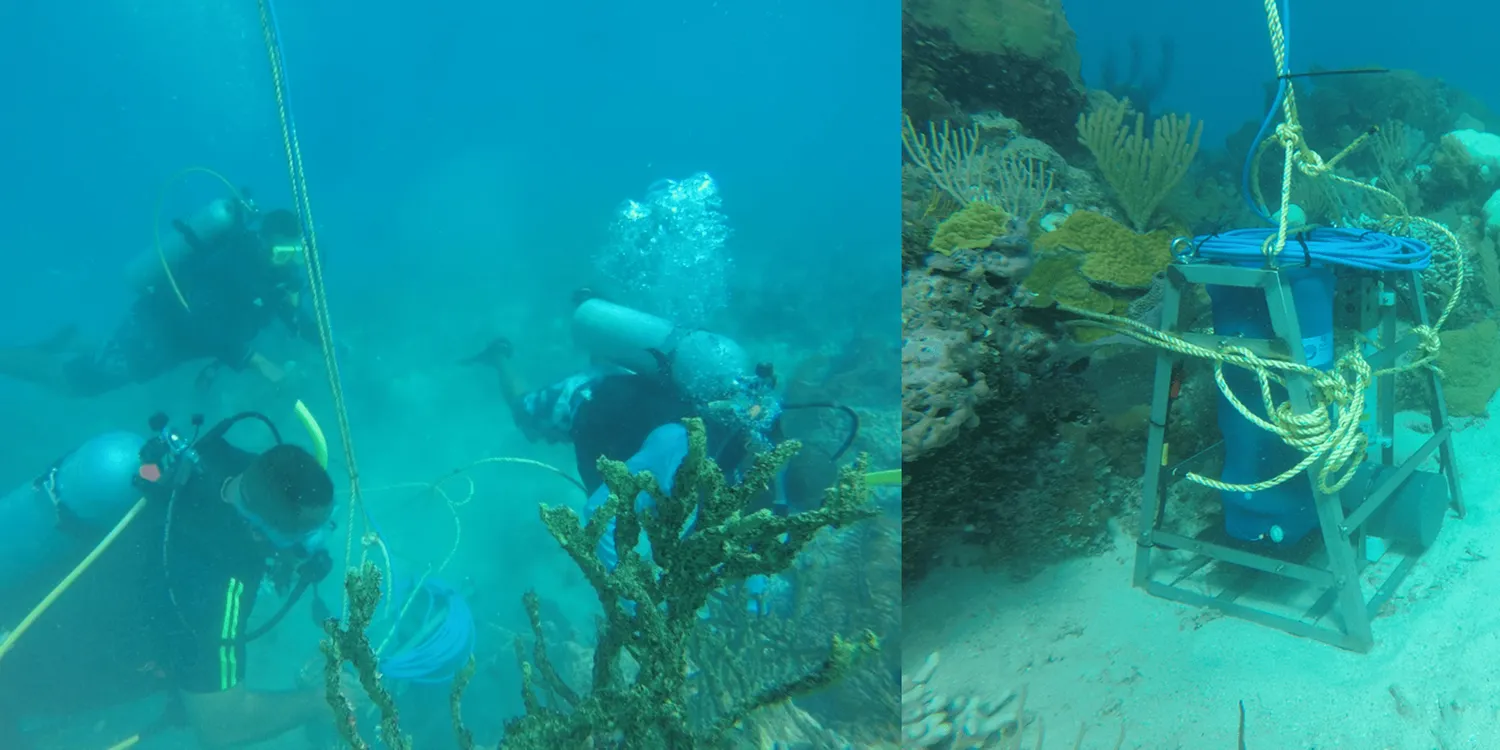09 Nov 2020
International ocean technology experts from Cyprus, France, Germany, Greece, Ireland, Italy, Spain and the United Kingdom are uniting to develop a range of new in-situ sensing, imaging and sampling technologies (e.g. on robot submersibles) that will improve our understanding of the chemistry and biology of the oceans.
Funded by a €8.9M grant from the European Union's Horizon 2020 programme, TechOceanS – Technologies for Ocean Sensing – will pioneer five new sensors, two imaging systems, a novel sampler and an Artificial Intelligence-driven image processing methodology, all capable of robust operations at depths beyond 2,000 metres.
TechOceanS will actively engage with scientists, manufacturers, marine stakeholders and resource managers to target “Essential Ocean Variables” that currently can only be measured by observations from a ship. The new technologies developed in the project will enable the capture of vital, previously inaccessible data on the ocean’s biogeochemistry, biology and ecosystems.
The project’s highly interdisciplinary team ensures that the technologies developed will both expand our knowledge of the ocean’s interconnected systems and provide tangible benefits to those industries most directly reliant on them, such as fisheries and aquaculture. The data generated will also support conservation initiatives and provide vital information for policymakers.
Professor Matthew Mowlem, TechOceanS Project Coordinator, said “TechOceanS is an ambitious project that has the potential to revolutionise how we measure and monitor our changing oceans. The exciting technology we’re developing will capture important data that will have a significant impact in diverse areas such as ocean conservation, resource management, blue economy and policy."
TechOceanS will deliver an unprecedented acceleration in the diversity and capability of sensors and measurement systems. Technical ambitions for the project include:
- piloting and demonstrating novel nucleic acid samplers and sensors targeting the genetic code of aquatic organisms to identify them and quantify their populations;
- improving imaging systems and image processing workflows so that machines can turn vast numbers of images into data about species, habitats and plastic pollution;
- producing optical primary productivity (plant growth) and multiparameter optical sensors to measure energy entering the base of the food web and to investigate water quality ; and
- creating biogeochemical and bio-assay enabled lab-on-chip sensors and microcytometers to measure a large number of parameters including: nutrients, carbon dioxide, trace metals, bio-toxins, pollutants, single celled organisms and microplastics.
The future impact of these valuable technologies relies on their accessibility. Therefore, TechOceanS technology pilots will be low-cost and place minimal demands on existing infrastructure, allowing them to be made available for use by all countries regardless of resources.
In addition to expanding scientific knowledge of the ocean, TechOceanS will focus on improving “ocean best practices” by working closely with the to develop training and standards covering metrology and operation of measurement systems in addition to the application of management principles, standards, protocols and communications for open access data. In this way, the project will ensure the developed best practices are truly global, inclusive and transparent.
Through the targeted technologies, diverse partner base and cooperation with concurrent projects, TechOceanS will contribute to the growth of scientific knowledge, the transfer of marine technology and other key components of the Blue Economy as described in international accords such as the , the , the , the and .
Dr Patricia López-García, one of the TechOceanS project managers, said “In addition to the work carried out within the project, TechOceanS will form mutually beneficial links with a number of other projects over its lifetime, such as Nautilos, EuroSEA, Blue-Cloud, iAtlantic, AtlantECO, Euro-Argo ERIC, MISSION Atlantic and others. Through these synergies, we are excited to contribute to a brighter future for our world’s seas.”
The TechOceanS launch meeting will be held on Tuesday 10 November 2020. The first priorities for the project will include targeting key enabling innovations and establishing cross-cutting research activities to accelerate the development of targeted technologies and forming plans with target dates for their testing demonstration and roll out.
For more information, follow on Twitter, join the LinkedIn group and (from December 2020) check out the project website at www.techoceans.eu.
Figure 2 A Deep-diving remotely operated vehicle (ROV) Isis () enables measurements and experiments at depths unreachable by human divers. Here Isis deploys a raft of sensors to verify the use of sensors in ensuring CO2 remains safely stored subseabed (STEMM-CCS project). TechOceanS will provide ROVs, autonomous robots and other platforms with a suite of new capabilities that will ultimately benefit researchers, fisheries, conservationists, offshore industries and governments who all rely on data to manage sustainability of our oceans [©NOC]
Figure 3: Installation of a self-contained, autonomous monitoring system capable of measuring pH (climate level quality), dissolved oxygen, salinity, temperature and nitrate/nitrite at depths of maximum 50 m. The system includes a satellite telemetry unit for relaying data offshore to a shared server, enabling the measurements to contribute to global observing systems/portals such as GOOS/GOA-ON. Photo of the Ocean acidification monitoring kit installed in Belize. [©NOC]
Notes for the Editor:
TechOceanS (“Technologies for Ocean Sensing”) is a research and innovation action funded under the European Union’s Framework Programme for Research and Innovation, Horizon 2020, grant No. 101000858.
The project will run for four years from 2020 to 2024, with a total budget of €8.9 million.
The multi-stakeholder, multi-disciplinary TechOceanS team represents leading organisations in ocean science, technology, policy and industry in Europe. The project is coordinated by the National Oceanographic Centre (NOC) in the UK.
The 13 European partners represent a total of 8 countries: Cyprus (Cyprus Subsea Consulting and Service), France (SU), Germany (AWI, GEOMAR), Greece (Idryma Technologies), Ireland (DCU, Intrigo, AquaTT), Italy (SZN), Spain (PLOCAN) and the United Kingdom (NOC, UoS, Chelsea Technologies).
Contact us:
Project Coordinator: Matthew Mowlem
Project Management Team: Patricia Lopez-Garcia, Carla Sands, Hannah Sait and Annika Simpson
Press and Communications: Keegan Porter
